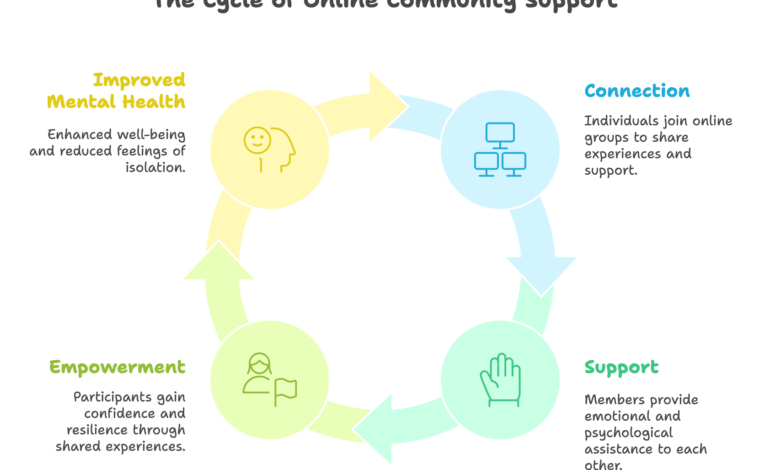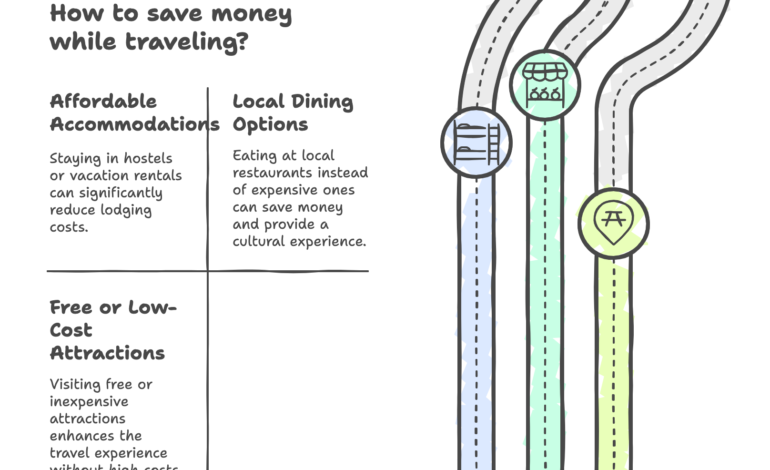Online Communities and Mental Health: The Power of Connection in the Digital World

The world is increasingly interconnected, and social media has become a massive part of our daily lives. While social media platforms have received a lot of attention for their role in influencing mental health—sometimes negatively—there is also a powerful side to the digital world: online communities. These communities have become safe spaces where people with shared experiences can come together to support, learn from, and motivate each other. From mental health support groups to groups for specific illnesses or challenges, online communities have revolutionized how we connect, share, and support each other.
In this blog, we will explore the relationship between online communities and mental health. We’ll dive into how these communities can offer valuable support, foster a sense of belonging, and improve mental well-being, while also addressing some of the challenges and pitfalls that come with online interactions.
What Are Online Communities?
Online communities are groups of people who come together via the internet to share common interests, goals, or experiences. These communities can be as broad as a group for people who love a particular hobby, or as specific as support groups for individuals going through similar health challenges. They exist on various platforms such as forums, social media networks, and dedicated websites, and they offer a space for individuals to connect, interact, and support one another.
For many people, online communities have become an integral part of their lives. They provide a way to connect with others who understand their unique struggles, especially for those who might not have access to support in their immediate surroundings. These communities can be particularly valuable for individuals facing mental health challenges, as they offer a sense of solidarity and understanding that is sometimes difficult to find elsewhere.
The Positive Impact of Online Communities on Mental Health
1. A Sense of Belonging
One of the most powerful aspects of online communities is the sense of belonging they provide. For individuals who may feel isolated due to their mental health challenges, online groups can be a lifeline. Whether it’s depression, anxiety, or a specific condition like OCD, being able to connect with others who understand what you’re going through can create an overwhelming sense of validation.
In face-to-face interactions, it can be difficult to find people who truly understand your struggles. In an online community, however, everyone is there for the same reason—because they share a common experience. This shared understanding can create bonds that transcend physical distance, offering a sense of connection that is invaluable for mental well-being.
2. Access to Support and Encouragement
Online communities can serve as a critical support system, providing emotional support during difficult times. In many cases, people find it easier to open up and share their thoughts and feelings in online settings because there’s less fear of judgment compared to face-to-face interactions. The anonymity offered by many platforms allows individuals to be more honest and open about their mental health struggles, which can be a huge relief.
For example, in mental health support groups, people can share their experiences with others who know exactly what they are going through. This shared understanding creates a space where advice, encouragement, and empathy are freely exchanged. In these communities, it’s common for members to offer words of encouragement to one another, celebrate victories—big and small—and provide a sense of comfort when times are tough.
3. Learning from Others’ Experiences
One of the major benefits of online communities is the wealth of knowledge that is available. In many groups, individuals share tips, coping mechanisms, and resources that have helped them manage their mental health challenges. This exchange of information can be invaluable, especially when it comes to finding ways to improve one’s mental well-being.
For example, if someone is struggling with managing anxiety, they might find advice on mindfulness exercises, grounding techniques, or self-care routines that have helped others in similar situations. Having access to this kind of support can make a huge difference in how someone manages their mental health and even aid in recovery.
4. Fostering a Sense of Empowerment
Online communities can also help individuals feel more empowered. When you’re struggling with mental health issues, it’s easy to feel helpless or alone. However, being part of an online community where people are actively discussing solutions, sharing their progress, and supporting each other can create a sense of empowerment. It can make you feel like you’re not alone in your journey and that there are others out there who are rooting for your success.
Many online groups are centered around overcoming challenges. Whether it’s managing a mental health condition or achieving a personal goal, these communities emphasize growth, learning, and self-improvement. This focus on progress can encourage members to take positive steps toward improving their well-being.
Challenges of Online Communities for Mental Health
While online communities can be a great source of support, there are also some challenges that come with relying on digital spaces for mental health support. It’s important to understand these challenges to ensure that online interactions remain healthy and productive.
1. Misinformation and Lack of Professional Guidance
One of the biggest concerns with online communities is the potential for misinformation. While peer support is invaluable, it’s important to remember that not everyone in an online group is a trained professional. This means that advice or suggestions offered may not always be appropriate or effective. In some cases, incorrect information could even worsen someone’s mental health.
For example, members of a mental health group might share advice on how to manage symptoms, but without a professional background, these suggestions could be based on personal experience rather than scientifically proven methods. While shared experiences can be helpful, it’s always best to consult with a mental health professional for guidance on managing mental health conditions.
2. Echo Chambers and Groupthink
Another potential downside of online communities is the risk of falling into an echo chamber. An echo chamber occurs when everyone within a community shares the same opinions, ideas, or beliefs. While this can create a sense of unity, it can also hinder growth and lead to groupthink, where critical thinking is stifled.
For individuals facing mental health challenges, an echo chamber can reinforce negative thought patterns. For instance, a support group focused on anxiety might encourage members to focus excessively on their fears and worries, which could prevent them from seeking professional treatment or trying new, evidence-based approaches to managing their condition.
3. Over-reliance on Online Support
While online communities can be an excellent source of support, it’s important not to rely solely on them for mental health care. Online communities should not replace in-person therapy, professional treatment, or support from family and friends. Over-reliance on online groups could lead to individuals neglecting the importance of professional guidance or engaging in unhealthy patterns of self-diagnosis and self-treatment.
In some cases, the anonymity provided by online platforms can make it difficult to establish genuine connections with people. Although people might share their personal stories, there can still be a lack of accountability, and it’s easier to disengage from the support system when things get tough.
4. Toxicity and Negative Interactions
Not all online communities are supportive and positive. Some groups or forums may harbor negativity, toxic behavior, or bullying, which can be damaging to mental health. For example, in some social media communities, individuals may be subject to harassment, mockery, or judgment for sharing their struggles. These negative interactions can exacerbate feelings of anxiety, depression, and self-doubt.
It’s crucial to be aware of the environment you’re engaging with and choose communities that foster kindness, respect, and constructive feedback. If a community feels toxic or harmful, it’s best to disengage and find a more supportive space.
How to Maximize the Benefits of Online Communities for Mental Health
If you’re looking to improve your mental well-being through online communities, there are several steps you can take to ensure a positive and healthy experience.
1. Choose the Right Communities
Make sure that the online community you join aligns with your values and mental health needs. Look for communities that are moderated effectively and have clear guidelines for respectful, supportive behavior. Seek out spaces where positivity, empathy, and understanding are encouraged, and where members are open to sharing helpful advice and resources.
2. Limit Your Time Online
Spending too much time in online communities can lead to digital fatigue. Set boundaries for how much time you spend engaging with online groups and take regular breaks to avoid becoming overwhelmed. It’s essential to balance your online participation with other aspects of your life, such as in-person relationships, hobbies, and self-care practices.
3. Engage Actively and Positively
Be an active participant in the community by sharing your own experiences, offering support, and being kind to others. Engaging positively can help create a more inclusive and supportive environment for everyone involved. Offering encouragement to others in the community not only helps them but can also boost your own mental well-being.
4. Seek Professional Help When Needed
While online communities can offer great peer support, they should not replace professional treatment. If you’re facing a mental health challenge, it’s important to seek guidance from a licensed therapist or counselor. Online communities can complement professional care, but they should never be your only source of support.
Conclusion
Online communities have a profound impact on mental health, providing spaces for individuals to connect, share experiences, and support each other. They offer a sense of belonging, empowerment, and learning that can be crucial for those facing mental health challenges. However, like any resource, online communities come with their own set of challenges, including misinformation, groupthink, and toxicity.
To make the most of online communities for mental health, it’s important to engage with supportive, respectful spaces, set boundaries, and seek professional help when necessary. By doing so, you can use the digital world to enhance your well-being and foster connections that contribute to your mental health journey.







